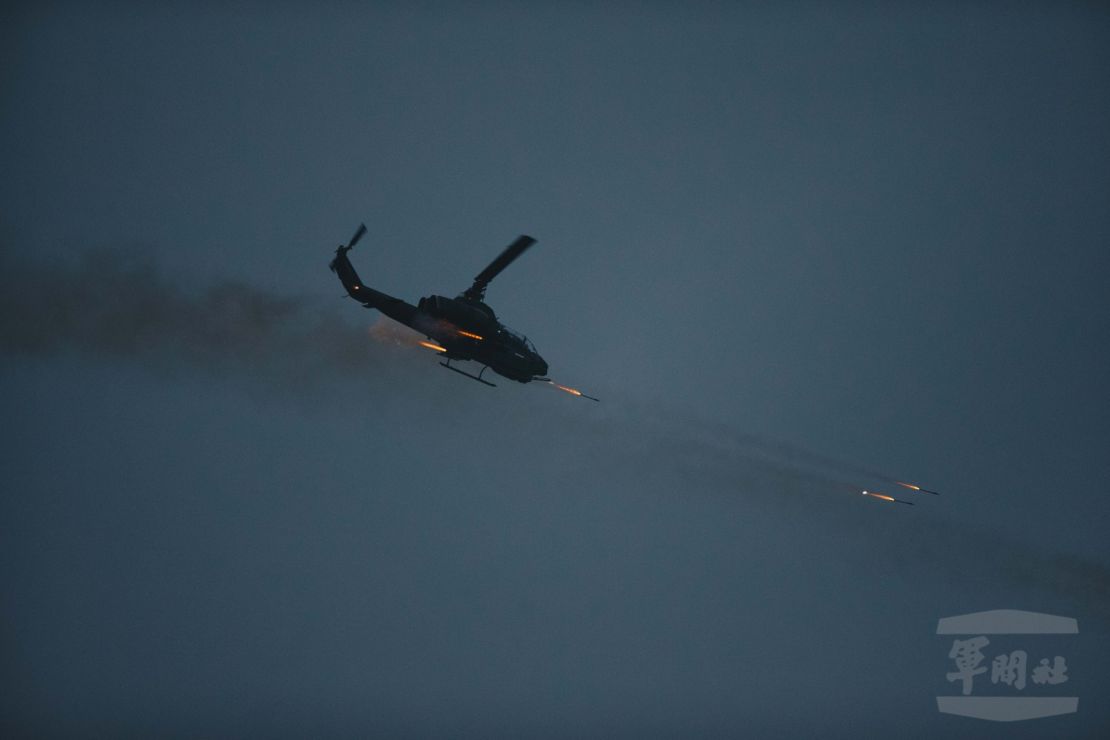Switzerland Condemns Chinese Military Drills Near Taiwan

Table of Contents
Switzerland's Official Statement and its Significance
Keywords: Swiss statement, diplomatic response, official condemnation, neutral stance, international law
Switzerland's official statement condemning the Chinese military drills near Taiwan marked a departure from its traditionally neutral foreign policy. While the specifics of the statement need to be referenced from official Swiss government sources (link to source here if available), its significance lies in the clear disapproval expressed by a country known for its non-interference in international conflicts.
-
Unprecedented Action: The condemnation represents a notable shift, particularly given Switzerland's historical commitment to neutrality. It signals a growing unease within the international community regarding China's increasingly assertive military posture.
-
International Law Violation?: The statement likely alludes to violations of international law or norms surrounding the use of force and the peaceful resolution of disputes. Analyzing the precise wording will be crucial in understanding the extent of Switzerland's concerns and the legal frameworks they are referencing.
-
Impact on International Perceptions: Switzerland's condemnation adds weight to the international pressure on China. Coming from a nation historically associated with impartiality, this stance carries significant symbolic weight and might influence other neutral countries to reconsider their silence.
-
Shift in Swiss Foreign Policy?: While it's too early to definitively declare a complete shift in Swiss foreign policy towards China, this action strongly suggests a reevaluation of Switzerland's approach to dealing with situations where fundamental international principles are challenged. Further analysis of Swiss diplomatic actions will be needed to fully assess this potential paradigm shift.
Geopolitical Context of the Chinese Military Drills
Keywords: Taiwan Strait crisis, China's territorial claims, US-China relations, regional security, military escalation
The Chinese military drills near Taiwan occur within the context of long-standing tensions between China and Taiwan. China considers Taiwan a breakaway province and has repeatedly asserted its intention to achieve reunification, by force if necessary.
-
China's Assertiveness: These drills are seen as a demonstration of China's growing military power and its determination to assert its claims over Taiwan. They are a response to perceived provocations, often involving high-level visits from US officials to Taiwan, further escalating US-China tensions.
-
Regional Instability: The drills heighten regional security concerns, particularly for Taiwan and its neighbors. They raise the risk of miscalculation and accidental escalation, potentially leading to a wider conflict. The proximity of the drills to major shipping lanes also presents significant economic risks.
-
International Responses: Numerous countries, including the US, have expressed strong concerns about the drills, highlighting their destabilizing impact on the region. Many have called for restraint and a peaceful resolution to the Taiwan issue through dialogue.
-
Escalation Concerns: The scale and intensity of the drills raise serious concerns about a potential escalation of the conflict. The risk of unintended incidents and the potential for miscalculation make de-escalation a top priority for the international community.
International Reactions and Switzerland's Role in Multilateral Diplomacy
Keywords: international community, global response, UN response, multilateralism, Swiss diplomacy, peacekeeping
The international community has largely condemned China's military drills near Taiwan. Many countries have issued statements expressing concerns about the drills' impact on regional stability and the importance of maintaining peace in the Taiwan Strait.
-
Global Condemnation: The breadth of international condemnation underscores the growing global concern over China’s actions. The violation of norms of international law and the threat to regional peace have prompted numerous countries to speak out.
-
Switzerland's Role: Switzerland’s condemnation, given its neutral position, adds a unique dimension to the international response. It suggests a growing consensus among nations, regardless of their geopolitical alignments, that China's actions are unacceptable.
-
Multilateral Diplomacy: Switzerland, with its history of successful mediation and peacekeeping, could play a valuable role in de-escalating tensions. Its neutral status allows it to engage with all parties involved and potentially facilitate dialogue and cooperation.
-
Promoting Peaceful Solutions: Switzerland’s expertise in conflict resolution and its commitment to international law position it well to contribute to multilateral efforts aimed at finding a peaceful and sustainable solution to the Taiwan Strait issue.
The Economic Dimension: Switzerland's Trade Relations with China and Taiwan
Keywords: Swiss-China trade, Swiss-Taiwan trade, economic sanctions, trade implications, economic pressure
Switzerland maintains significant trade relationships with both China and Taiwan. Understanding these economic ties is crucial in assessing the potential impact of the geopolitical situation on the Swiss economy and the potential for economic leverage.
-
Trade Dependence: Switzerland's economic relationship with China is substantial, making it vulnerable to potential disruptions. The potential consequences of trade disputes or sanctions need to be carefully weighed.
-
Balancing Act: Switzerland faces a challenge in balancing its economic interests with its commitment to international law and its condemnation of China's actions. This calls for a nuanced diplomatic approach.
-
Economic Pressure: While unlikely to impose direct economic sanctions, Switzerland could potentially utilize its economic influence through diplomatic channels to encourage China to de-escalate tensions and engage in constructive dialogue.
Conclusion
Switzerland's condemnation of the Chinese military drills near Taiwan is a significant event, marking a departure from its traditional neutrality and adding weight to the growing international concern about China's actions. This unusual step highlights the increasing global unease surrounding the situation in the Taiwan Strait and the potential for wider conflict. Switzerland's involvement underscores the need for multilateral diplomacy and peaceful conflict resolution.
Call to Action: Follow developments regarding China's military activities near Taiwan, stay updated on Switzerland's response to the situation, learn more about the complexities of the Taiwan Strait conflict, and understand the growing international condemnation of Chinese military drills near Taiwan. The situation requires continuous monitoring and informed engagement from the global community.

Featured Posts
-
 Jail Sentence For Wife Of Tory Councillor Over Racist Tweets In Southport
May 22, 2025
Jail Sentence For Wife Of Tory Councillor Over Racist Tweets In Southport
May 22, 2025 -
 Cassis Blackcurrant Cocktails Classic And Creative Recipes
May 22, 2025
Cassis Blackcurrant Cocktails Classic And Creative Recipes
May 22, 2025 -
 Review Of The Popular Childrens Book Love Monster
May 22, 2025
Review Of The Popular Childrens Book Love Monster
May 22, 2025 -
 Core Weave Inc Crwv Deconstructing Last Weeks Stock Market Performance
May 22, 2025
Core Weave Inc Crwv Deconstructing Last Weeks Stock Market Performance
May 22, 2025 -
 Marks And Spencer Cyber Attack 300 Million Cost Revealed
May 22, 2025
Marks And Spencer Cyber Attack 300 Million Cost Revealed
May 22, 2025
